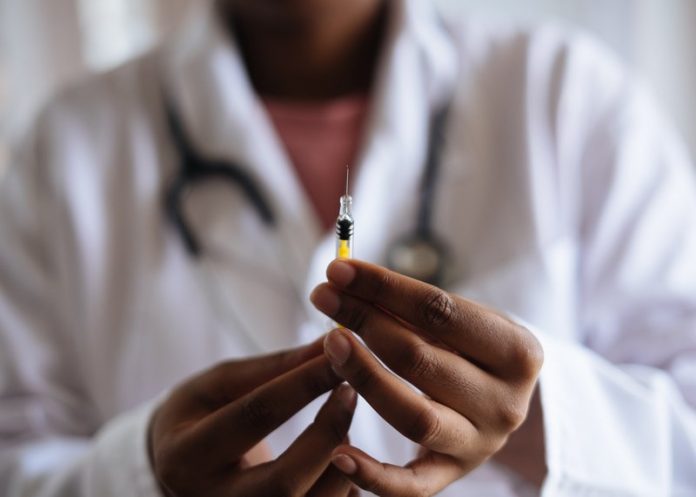
In a new study, researchers report findings from a phase 2 trial of an Ad5 vectored COVID-19 vaccine candidate.
They found the vaccine is safe and induces an immune response.
The study sought to evaluate the safety and immunogenicity of the vaccine candidate and follow a phase 1 trial published in May 2020.
The results provide data from a wider group of participants than their phase 1 trial, including a small sub-group of participants aged over 55 years and older, and will inform phase 3 trials of the vaccine.
However, the researchers note that it is important to stress that no participants were exposed to the SARS-CoV-2 virus after vaccination, so it is not possible for this study to determine whether the vaccine candidate effectively protects against SARS-CoV-2 infection.
The research was conducted by a team at Disease Control and Prevention in China.
Currently, there are about 250 candidate vaccines against SARS-CoV-2 in development worldwide, including mRNA vaccines, replicating or non-replicating viral vectored vaccines, DNA vaccines, autologous dendritic cell-based vaccine, and inactive virus vaccines.
At least 17 of them are currently under evaluation in clinical trials.
The vaccine in this trial uses a weakened human common cold virus (adenovirus, which infects human cells readily but is incapable of causing disease) to deliver genetic material that codes for the SARS-CoV-2 spike protein to the cells.
These cells then produce the spike protein and travel to the lymph nodes where the immune system creates antibodies that will recognize that spike protein and fight off the coronavirus.
508 participants took part in the trial of the new vaccine. Of these, 253 received a high dose of the vaccine, 129 received a low dose, and 126 received a placebo.
Approximately two-thirds of participants were aged in 18-44 years, a quarter was aged 45-54 years, and 13% were 55 years or older.
The team found that 95% of participants in the high dose group and 91% of the recipients in the low dose group showed either T cell or antibody immune responses at day 28 post-vaccination.
The vaccine induced a neutralizing antibody response in 59% and 47% of participants, and binding antibody response in 96% and 97% of participants, in the high and low dose groups, respectively, by day 28.
The participants in the placebo group showed no antibody increase from baseline.
Both doses of the vaccine induced strong neutralizing antibody responses to live SARS-CoV-2.
The proportions of participants who had any adverse reactions such as fever, fatigue and injection-site pain were significantly higher in vaccine recipients than those in placebo recipients
However, most adverse reactions were mild or moderate.
The team says since elderly individuals face a high risk of serious illness and even death associated with COVID-19 infection, they are an important target population for a COVID-19 vaccine.
It is possible that an additional dose may be needed in order to induce a stronger immune response in the elderly population, but further research is underway to evaluate this.
One author of the study is Professor Feng-Cai Zhu, Jiangsu Provincial Center for Disease Control and Prevention.
The study is published in The Lancet.
Copyright © 2020 Knowridge Science Report. All rights reserved.



